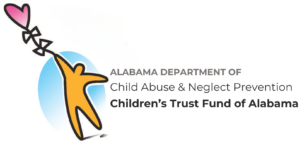During my addiction, I had lost all hope for recovery, happiness, and even life. When I saw other people living “normal, happy lives”, I would instantly begin to judge them. I truly believed these people were naive and ignorant to how horrible the world was. In reality, the world was not an awful place, but this perspective began to effect how I related to my peers, the world, and even myself. I was unknowingly jealous of the happiness they possessed because I did not believe I could ever find it for myself.
It was not until I had hit an emotional bottom, that I asked for help. At that moment, my own pain empowered me to allow someone to help me save my life. While in recovery, I began to meet men and women who vulnerably shared that they used to have the same feelings I did during active addiction. They experienced the same utter hopelessness coupled with self-loathing and shame. However, they had discovered how to turn their lives into one of happiness, love, and acceptance.

Before this point, I had never met people who were so caring and honest about themselves. During my addiction, I had lost any sense of what kind of person I wanted to be. As a result of hearing these people share, I became empowered to learn everything they had about life. I felt a new sense of determination to be, feel, and do better.
As I continued my recovery, I knew I wanted to be able to empower others as these people did for me. Being able to lift others up in sobriety is one of the primary things that has helped me remain sober. Most importantly, it is good to understand how to lead by example for others who struggle with drugs and alcohol – so that they too can achieve recovery. So, this begs the question, how can you empower others in recovery?
Leading by Example
In early recovery, I did not believe in sobriety being a long-term possibility. In fact, I only planned on staying sober throughout detox. In my own naivety, I thought that the substances were my issue. However, I quickly learned that I had more work to do once the drugs left my body. After seeing others in recovery who had years of sobriety, I noticed that they seemed different. They almost seemed to have an unwavering sense of faith that everything would always work out.
Personally, I knew that I still lacked hope and happiness even after becoming medically sober. The recovered people around me inspired me to continue my recovery through their example. Additionally, I learned that actions speak louder than words. Leading by example does not mean memorizing recovery quotes and preaching or ranting to others about sobriety. It does mean becoming a consistent, reliable, and honest person.
Being Supportive Without Enabling
One of the most difficult lessons I learned in recovery was how to accept constructive criticism – even when it hurt. Particularly, when I was working on the emotional aspect of recovery, I needed help in identifying which areas I needed to improve on. In order to do so, I had to find someone who possessed the personality traits that I wanted and needed.
 The woman who I worked with was one of the most sincere and loving women I had met to date. When she asked someone how they were doing, you could tell that she actually wanted to know the truth. I found this to be extremely desirable, as I was used to people only asking how you are as a form of nicety and small talk. However, when someone needed a wake-up call, she would politely give them one with honest advice and guidance. Her ability to do so led me to begin to trust people again. Additionally, this taught me how to support my friends, loved ones, and peers, without enabling them.
The woman who I worked with was one of the most sincere and loving women I had met to date. When she asked someone how they were doing, you could tell that she actually wanted to know the truth. I found this to be extremely desirable, as I was used to people only asking how you are as a form of nicety and small talk. However, when someone needed a wake-up call, she would politely give them one with honest advice and guidance. Her ability to do so led me to begin to trust people again. Additionally, this taught me how to support my friends, loved ones, and peers, without enabling them.
Be Proud of your Story
Most addicts come into recovery full of shame in regard to their past. As a result, they may be reluctant to open up with others about their traumas, resentments, and fears. When this happens, it is likely that their shame will come to a boiling point and lead them to a relapse. This could have been my story, had I not heard countless people share painful parts of their past at recovery meetings every week. While many argue that sharing “war stories” from our addiction is perpetuating addiction, it actually allows the newcomer to relate.
Being able to relate with others in early recovery allows the newcomer to realize that recovery is possible for them. It begins to give them hope for real change. As a newcomer, I truly believed that no one else had experienced, and even caused, the pain that I did. Hearing another woman share that she had gone through the same traumas as I, yet recovered and grew into such a respectable person, empowered me to do the same.
Therefore, in order to empower and inspire others, you must let go of shame. Be proud of your past, while remaining cautious not to repeat it. Be willing to share your story with the people around you. Always be supportive of others and be willing to give constructive criticism when it is needed. Most importantly, always practice the principles you preach. When other people see that your actions stay true to your word, you gain credibility and possibly inspire someone to follow your lead. In doing so, you may empower a struggling person to seek help and begin recovery.









